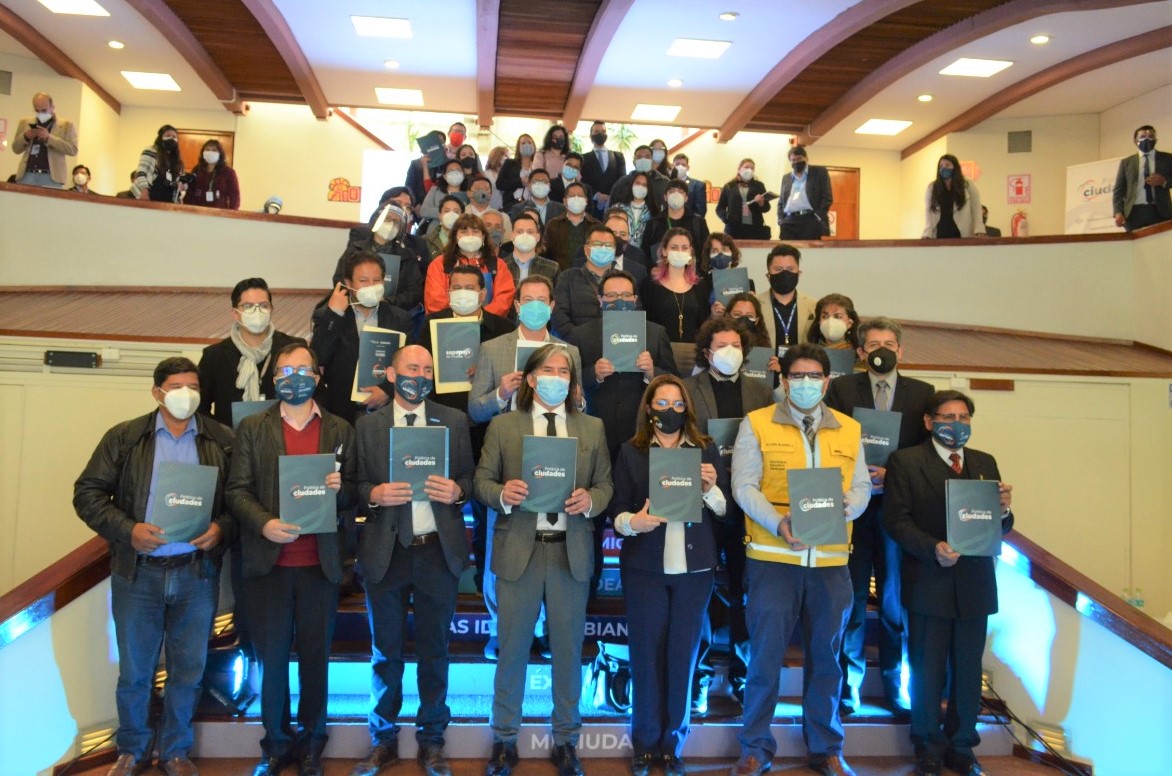La Paz, Bolivia, October 7, 2020. – To mark World Habitat Day, Bolivia’s Ministry of Public Works, Services and Housing, together with UN-Habitat Bolivia and the Swedish Embassy, presented the Cities Policy that will guide the comprehensive and balanced development of the country as a whole and of each of its cities and territories.
“This Cities Policy is not trying to be a speech, but to lay (the foundations) for what is coming next year; Municipal elections will come and the new public managers cannot stop talking about the cities. Today about 80 per cent of the population already lives in cities," said the Minister of Public Works, Services and Housing, Iván Arias.
This urban policy was developed through a broad and plural participatory process that involved nearly 250 sessions and workshops throughout the country, including two National Urban Forums, in which more than 7,000 representatives of institutions and organizations participated.
“For us, it has been very gratifying to be able to support this process for more than two years, supporting Sustainable Development Goal 11 to make cities and human settlements inclusive, safe, resilient and sustainable. The Cities Policy is also in full alignment with the New Urban Agenda, which was issued in Habitat III and assumed by the Bolivian government,” said the Executive Director of UN-Habitat, Maimunah Mohd Sharif in a video.

During the event, the Vice Minister of Housing and Urban Planning, Vladimir Ameller, symbolically delivered the document of the Cities Policy to the President of the Association of Municipalities of Bolivia (AMB), Rocío Molina, as the municipal governments of the urban centres will lead and implement this initiative.
“This proposal is a first impulse, a dynamo that will be transferred to the real protagonists, the cities. (The City Policy) is a proposal that respects and deepens the autonomous regime; it is and should be concluded in its implementation stage with, for and from the cities, which are ultimately its reason for being,” the Vice Minister specified.
Representatives of international cooperation, groups and urban entities, as well as departmental and municipal authorities from different cities in Bolivia took part in the event.
The Cities Policy is the strategic instrument to guide urban development, which identifies and proposes public policies to address challenges and take advantage of the opportunities posed by the urbanization process to contribute to the diversification of the economy, reduce inequalities and ensure sustainability.
The policy is being deployed on three levels: intra-urban, urban-territorial and urban-national. Its objectives are to achieve inclusive, healthy cities with a good quality of life and productive, orderly, sustainable and resilient cities, in addition to the governance of the city.
The policy has a timeframe of around 15 years, or three legislative periods, coinciding with the rounds of the Comprehensive Planning System of the State, as well as with the two major milestones in international agendas: the Sustainable Development Agenda of 2030 and the IV Conference of the United Nations on Housing and Sustainable Urban Development of 2036.